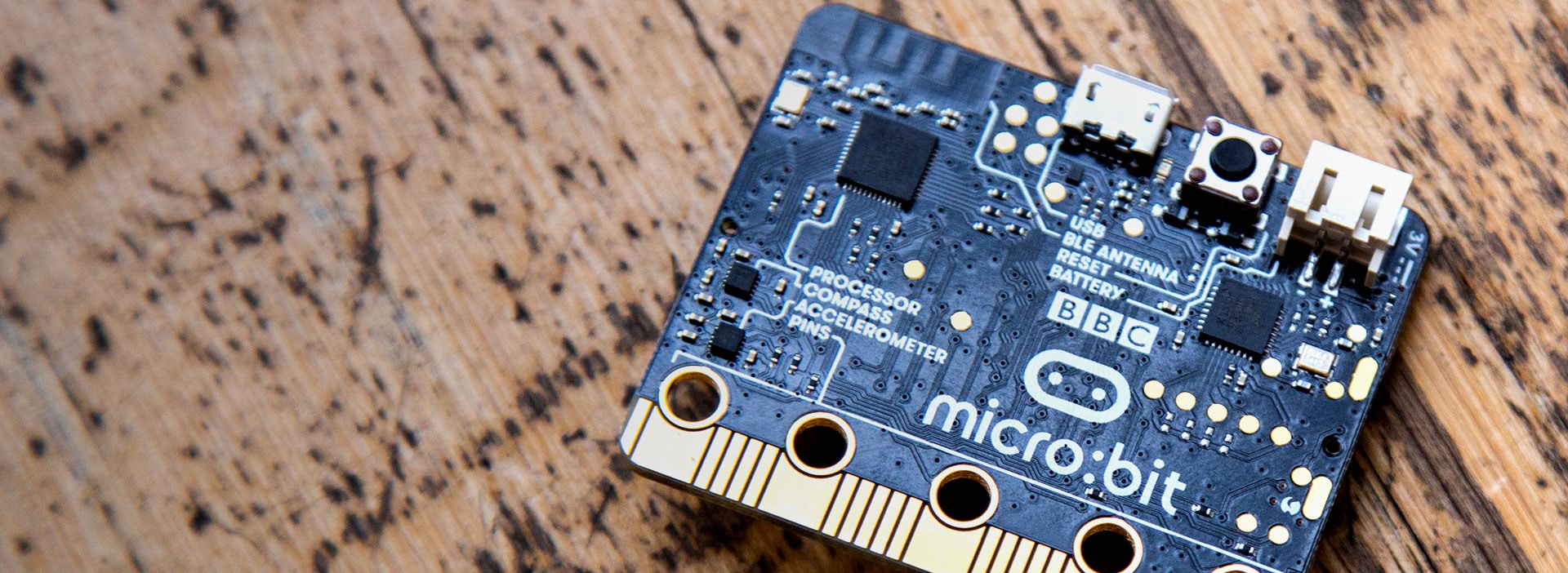BBC micro:bit
Technology Puts Kids in Control
A pocket-sized computer is helping students explore the potential of technology, and develop the skills needed to turn ideas into exciting new inventions. The BBC micro:bit is an easy-to-use programmable device that introduces children into coding. It is being offered free to year 7 pupils across the UK and is the result of an extraordinary collaboration between the broadcaster and 28 industry partners.
Its highly functional design means the BBC micro:bit can be coded in seconds and students’ imagination will be fired by its range of features. It includes a 3-axis accelerometer, 3-axis magnetometer, LED lights and programmable buttons. It can be physically linked to other devices via Bluetooth® Smart Technology and programmed using software available on the micro:bit website. More advanced tools are also available for students’ as their skills develop.
Featured Technology
The BBC micro:bit is enabled by Arm Mbed hardware and software development kits and compiler services. The software enables Lancaster University's micro:bit runtime solution, and the Microsoft programming interface sits on top of the compiler service, converting users' programs into code. The micro:bit features the nRF51822 SoC from Nordic Semiconductor that utilizes an Arm Cortex®-M0 processor and an NXP Kinetis KL26 SoC that is powered by a Cortex-M0+ core. Both are low-powered solutions that give kids plenty of opportunity to be innovative.
The project is part of the BBC’s wide-reaching Make it Digital initiative that is encouraging young people to explore digital technology. It also aligns with industry attempts to meet the demand for science and engineering skills.
